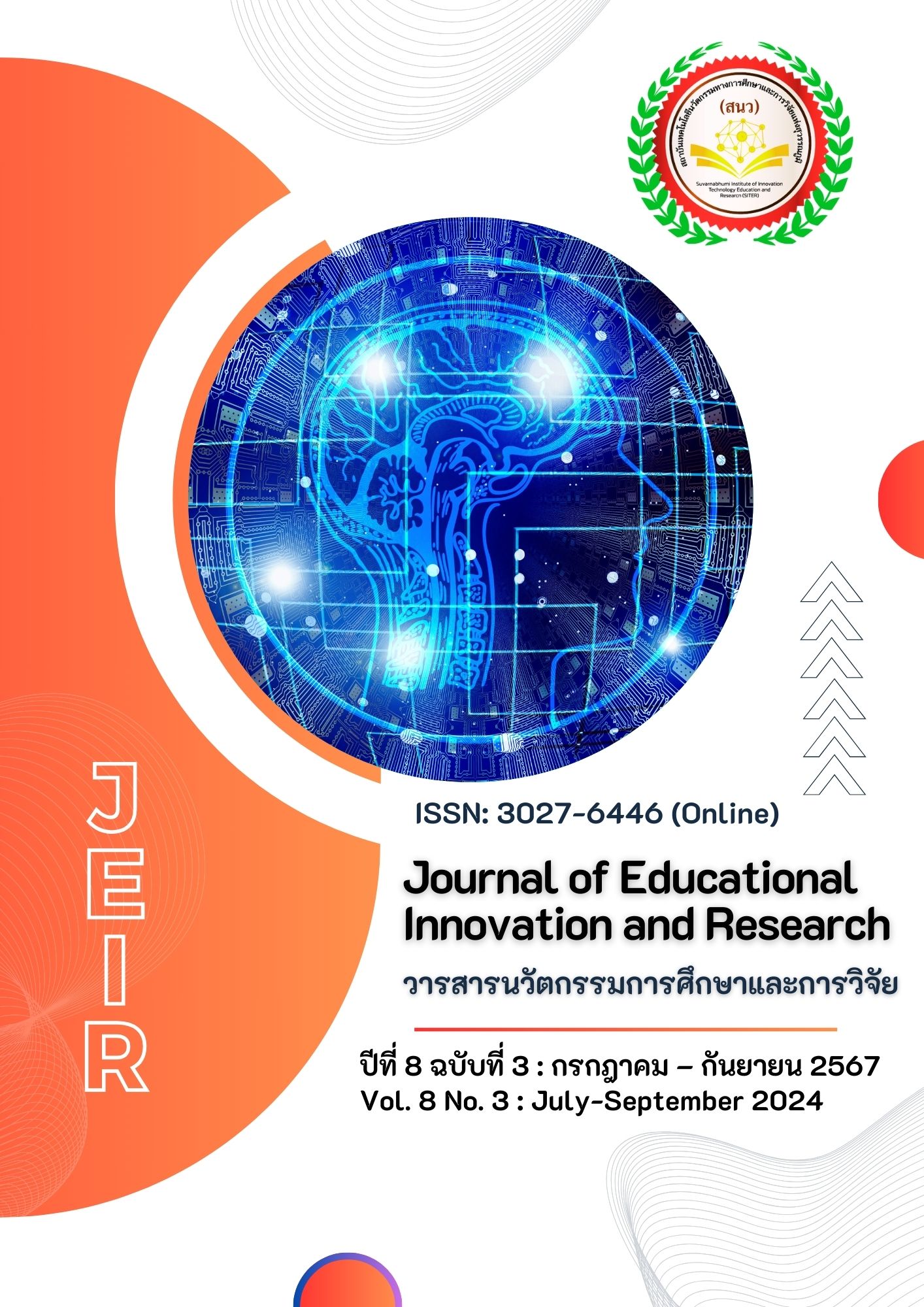แนวทางการพัฒนาคุณภาพผู้เรียนและการจัดการศึกษาของโรงเรียนประจำ พักนอนในพื้นที่สูงห่างไกลให้มีสมรรถนะพลเมืองรุ่นใหม่ ในโรงเรียนชุมชนแห่งการเรียนรู้
Main Article Content
บทคัดย่อ
บทความนี้มีวัตถุประสงค์เพื่อ 1) วิเคราะห์องค์ประกอบปัจจัยที่ส่งผลต่อคุณภาพผู้เรียนและการจัดการศึกษาของโรงเรียนประจำพักนอน 2) สังเคราะห์วิธีปฏิบัติที่ดีของโรงเรียนที่เป็นชุมชนแห่งการเรียนรู้ 3) สร้างและพัฒนาแนวทางการพัฒนาคุณภาพผู้เรียน และการจัดการศึกษาของโรงเรียนประจำพักนอนในพื้นที่สูงห่างไกล รูปแบบการวิจัยเป็นแบบผสานวิธี ใช้แนวคิดการวิจัยและพัฒนาเป็นกรอบการวิจัย พื้นที่วิจัยคือโรงเรียนประจำพักนอนภาคเหนือ ผู้ให้ข้อมูลสำคัญคือผู้บริหาร ครู จำนวน 24 คน จาก 6 โรงเรียน ใช้วิธีคัดเลือกแบบเจาะจง เครื่องมือที่ใช้ในการวิจัยมี 3 ชนิด คือแบบสำรวจ แบบประเมินความสำเร็จ และแบบสัมภาษณ์เชิงลึก วิเคราะห์ข้อมูลโดยใช้ ค่าเฉลี่ย ส่วนเบี่ยงเบนมาตรฐาน และการวิเคราะห์องค์ประกอบ ข้อมูลเชิงคุณภาพ ใช้วิธีวิเคราะห์เนื้อหา แล้วเขียนบรรยายเชิงพรรณนา ผลการวิจัยพบว่า
1. องค์ประกอบปัจจัยที่ส่งผลต่อการพัฒนาคุณภาพผู้เรียน และการจัดการศึกษาโรงเรียนประจำ พักนอน มี 4 องค์ประกอบ คือ ผู้บริหารและครู การจัดแผนงาน/กิจกรรมการพัฒนาสมรรถนะผู้เรียนให้เป็นพลเมืองรุ่นใหม่ การจัดสภาพแวดล้อมที่ปลอดภัย และ การจัดระบบสิ่งอำนวยความสะดวกสื่อและเทคโนโลยี
2. วิธีปฏิบัติที่ดีของโรงเรียนที่เป็นชุมชนแห่งการเรียนรู้ คือการปรับวิสัยทัศน์ของผู้บริหารและครู ผ่านระบบกิจกรรมการเรียนรู้ 3 ส่วน คือ ผู้เรียนเรียนรู้แบบร่วมมือ ครูออกแบบการเรียนรู้เชิงรุกด้วยวงจรชุมชนแห่งการเรียนรู้เชิงวิชาชีพ และการมีส่วนร่วมของพ่อแม่ และคนในชุมชนท้องถิ่น
3. แนวทางคือ การพัฒนาโรงเรียนเชิงระบบได้แก่ การจัดปัจจัย กระบวนการ และผลการดำเนินงาน นำไปใช้ 2 ด้านคือด้านพัฒนาผู้เรียน และการจัดการศึกษาของโรงเรียน
องค์ความรู้จากงานวิจัยนี้ 1) ผู้เรียนมีสมรรถนะพลเมืองรุ่นใหม่ สามารถใช้ทักษะความรู้ ทักษะอาชีพ ทักษะชีวิต เจตคติและคุณลักษณะที่กำหนด 2) ผู้บริหารและครูพัฒนาวิชาชีพโดยใช้กระบวนการชุมชนแห่งการเรียนรู้เชิงวิชาชีพ 3) โรงเรียนประจำพักนอนในพื้นที่สูงห่างไกลมีแนวทางการพัฒนาสมรรถนะผู้เรียนให้เป็นพลเมืองรุ่นใหม่และการจัดการศึกษาของโรงเรียนให้เป็นชุมชนแห่งการเรียนรู้
Article Details

อนุญาตภายใต้เงื่อนไข Creative Commons Attribution-NonCommercial-NoDerivatives 4.0 International License.
เอกสารอ้างอิง
Charoensiri, M. (2021). The Development of a School-based Professional Learning Community Model for the Enhancing Learning Management Competency on Active Learning Concepts that promotes Innovation of elementary school students. Journal of Education Silpakorn University,19(1), 236-252.
Chuang, N.C. & Ting, Y.K. (2021). School-based professional learning communities as a means for curriculum development: A case study from Taiwan. International Journal of Research in Education and Science (IJRES), 7(4),1184-1210. https://doi.org/10.46328/ijres.2408
Hoy, W.K. & Miskel, C.G. (2013). Educational Administration: Theory, Research, and Practice. 9th Edition. New York: McGraw-Hill.
Intawong, A. (2021). The Causal Relationship Model for the Whole School Approach of Schools in the Office of the Basic Education Commission [Doctoral dissertation, NaresuanUniversity].
Maxine. (2015). The 4 Types of School Principals. Retrieved 6 June 2020, from http://mawiasgedom.com/ the-4-typesofschool-principals/
Mungmesuksiri, O. (2019). Research and Development of the Guideline for Enhancing the Learning Opportunity and Equity in Boarding Schools in Northern Thailand. Office of the Basic Education Commission. Ministry of Education.
National Association of State Boards of Education. (2016). Educating Student in Rural America: Capitalizing on Strengths, Overcoming Barriers. Retrieved 6 June 2020, from https://www.nasbe.org/ educating-students-in-rural-america-capitalizing -on- strengths-overcoming-barriers
Pewdum, P. (2021). Professional Learning Community to the Success of the Organization. Journal of Educational Management and Research Innovation, 3(1), 11-18.
Preston, J.P. (2017).Successful Leadership in Rural Schools ERIC. Retrieved 6 June 2020, from https://files.eric.ed.gov›fulltext
Puangsomchit, C. (2017). Establishing good relationships between schools and communities. Veridian E-Journal in Science and Technology,10 (2), 1342-1353.
Sato, M. (2016). School Reform Concept “Learning Community” with the application of theory into practice. Nonthaburi: PhamPim Printing.
Sereerat, B. (2022). Teachers and Learners’ Competencies Development. Silpakorn Educational Research Journal, 14 (1), 1-11.
Thaochali, W. (2013). The Efficiency of School Administration related to the World Class Standard School of secondary schools in the Northeastern region [Doctoral dissertation, Silpakorn University].
Underwood, J. M. (2007). Study of the Implementation of a Professional Learning Community in one Middle School in Georgia. Retrieved 6 June 2020, from https://digitalcommons.georgiasouthern.edu/etd/286


